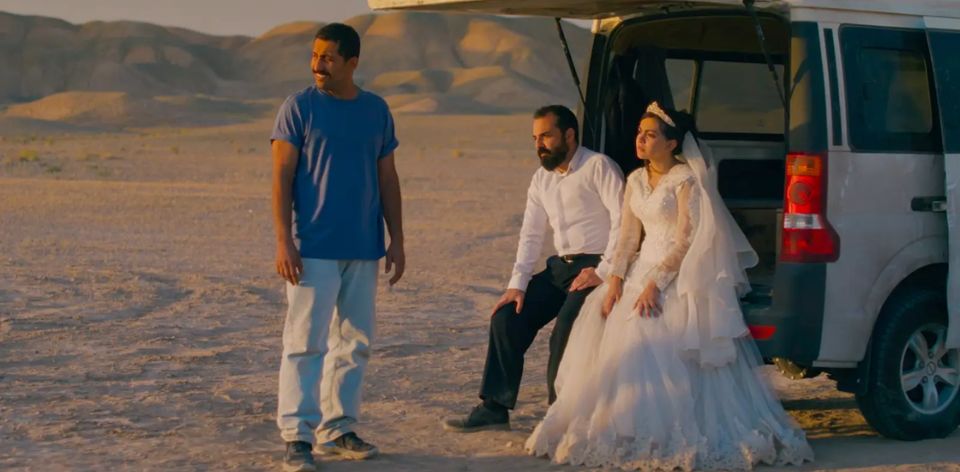When discussing the recent work of Mohammad Rasoulof, I noted that the word brave is often overused in film discourse—but it takes on renewed meaning when applied to a filmmaker who has faced exile, imprisonment, and censorship. The same has long been true of fellow Iranian director Jafar Panahi, whose IT WAS JUST AN ACCIDENT (aka Un simple accident) made a powerful statement when it won the Palme d’Or at Cannes this year.
Despite the official lifting of his filmmaking ban, Panahi still had to work in secret on this latest project. For good reason too: while the film plays like a reimagined road-movie thriller, it remains deeply critical of the Iranian government. The story begins with a man (Ebrahim Azizi) driving his family home at night when he’s involved in a minor traffic accident. Seeking help at a nearby repair shop, he’s met by Vahid (Vahid Mobasseri), who hears the man’s squeaking prosthetic leg and becomes convinced the man is Eghbal, the prison torturer who once brutalised him.
What follows is a tense, claustrophobic journey as Vahid becomes unsure whether his impulsive act has caught the right man. He gathers a group of others to confirm the captive’s identity: wedding photographer Shiva (Mariam Afshari), bride-to-be Goli (Hadis Paak Baten), her fiancé Ali (Majid Panahi), and the volatile Hamid (Mohamad Ali Elyasmehr). All but Ali were once victims of the man they call “Peg Leg.” As they debate Eghbal’s fate, the lines between justice and vengeance blur.
The premise is simple, but Panahi’s skill lies in how he balances this taut scenario with rich human complexity. Genre tropes are a vehicle, but the film’s heart lies in its characters: their pain, trauma, and resilience. Despite the heavy subject matter, what may surprise viewers is how sharply funny the script can be. Panahi leans into the absurdity of the situation at times, such as when this ragtag crew attempts to explain their predicament to a pair of bewildered security guards.
The third act takes a slightly more conventional turn, with a sudden detour to help a pregnant woman reach hospital. (I’m deliberately vague here, as it’s best discovered in the moment). While this sequence feels more constructed than the otherwise freewheeling energy of the film, it serves a purpose: to remind us that even those scarred by inhumanity haven’t surrendered entirely to darkness.
It all leads to a gut-punch of a climax, one that tests the humanity of its central characters and challenges our own assumptions. Panahi saves his sharpest critique for last, offering both a glimmer of hope and a chilling epilogue that lingers long after the credits roll.
2025 | Iran, France, Luxembourg | DIRECTOR: Jafar Panahi | WRITERS: Jafar Panahi | CAST: Vahid Mobasseri, Mariam Afshari, Ebrahim Azizi | DISTRIBUTOR: Sydney Film Festival 2025, Madman Entertainment (Australia) | RUNNING TIME: 102 minutes | RELEASE DATE: 4-15 June 2025 (SFF 2025)






